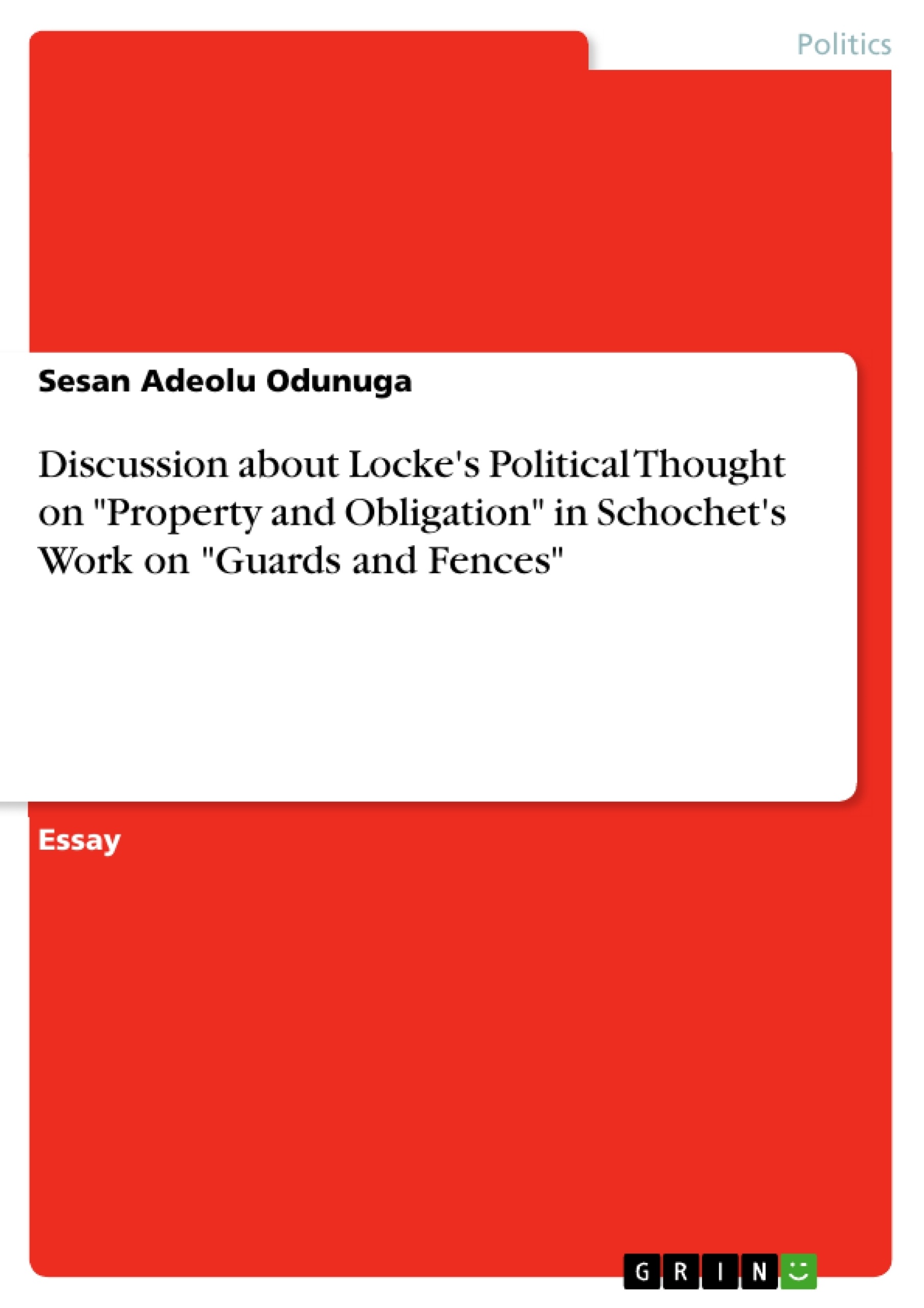Nature bestowed right to freedom on human beings in the state of nature, according to the naturalist. The right to freedom possessed by individuals in the state of nature allowed them access to the land. Therefore, possession of property emanates from the ability of individuals to work the land, according to John Locke. As a result, individuals had unequal possession and right to property in the state of nature. The departure from the state of nature to the political state means that human beings moved with their rights of ownership to property. However, the land that was free for all to work upon in order to acquire right of ownership is being controlled by the state in order to prevent unequal distribution of resources and promote redistribution of common good amongst the people. And also, to effectively manage the scarce resources in the civil state that form the basis of property ownership in the political state. Therefore, individuals in the political state are duty bound to the state authority in terms of obligation and respect for the state laws. On the other hand, the state is expected to protect and guarantee the rights of the people. In the case of breach of the trust reposed in the state, the essence of departing the state of nature has been defeated and consequently, the state has lost its legitimacy. Therefore, right to property commands obligation to the state. This essay aims at discussing Locke's political thought on 'property and obligation' as demonstrated in Schochet's work on 'guards and fences.'
Inhaltsverzeichnis (Table of Contents)
- Introduction
- From State of Nature to Civil Society: right to life, labor, and appropriation
- Political Obligation as a function of Protection of Individual Right to Property by the State
Zielsetzung und Themenschwerpunkte (Objectives and Key Themes)
This article explores the relationship between property and obligation in Locke's political thought. It examines how these concepts, though distinct, are complementary and interconnected within the framework of natural law and the transition from the state of nature to civil society.
- Natural Rights and the State of Nature
- The Right to Property and Labor Ownership
- The Transition from State of Nature to Civil Society
- Political Obligation and the Protection of Property Rights
- The Role of the State in Protecting Individual Rights
Zusammenfassung der Kapitel (Chapter Summaries)
The introduction outlines the fundamental principles of property and obligation in Locke's theory, emphasizing their complementary nature. It discusses the traditional natural rights of individuals in the state of nature, including the right to life, freedom, and the possession of resources.
The second section explores the transition from the state of nature to civil society. It delves into the concept of labor ownership, the criticisms of Grotius's theory of common good, and the importance of individual freedom in the state of nature. The section also addresses the potential for inequality arising from appropriation and the moral obligations that may arise from the use of common resources.
The final section focuses on political obligation as a function of protecting individual property rights. It examines the role of the state in providing security and adjudication, and the consent of the people in the formation of civil society. It also discusses the implications of the move from the state of nature to the political state and the importance of upholding individual rights.
Schlüsselwörter (Keywords)
The article explores the key concepts of property, obligation, natural rights, the state of nature, civil society, labor ownership, appropriation, political obligation, individual rights, and the role of the state in Locke's political thought.
Frequently Asked Questions
How does John Locke define the right to property?
According to Locke, the right to property emanates from an individual's labor. By working the land in the state of nature, individuals acquire ownership of the resources they have improved through their effort.
What happens to property rights when moving to a political state?
When humans transition from the state of nature to a political society, they bring their rights of ownership with them. The state is then expected to protect and guarantee these pre-existing rights.
What is the "political obligation" of a citizen?
Citizens are duty-bound to respect state laws and authority as long as the state fulfills its role in protecting their individual rights and managing resources for the common good.
When does a state lose its legitimacy according to Locke?
A state loses its legitimacy if it breaches the trust of the people by failing to protect their rights or by acting against the essence of why people left the state of nature in the first place.
What is the role of the state in redistributing resources?
In the political state, the government manages scarce resources to prevent unequal distribution and to promote the redistribution of the common good among the people.
- Citar trabajo
- Mr. Sesan Adeolu Odunuga (Autor), 2019, Discussion about Locke's Political Thought on "Property and Obligation" in Schochet's Work on "Guards and Fences", Múnich, GRIN Verlag, https://www.grin.com/document/458020



